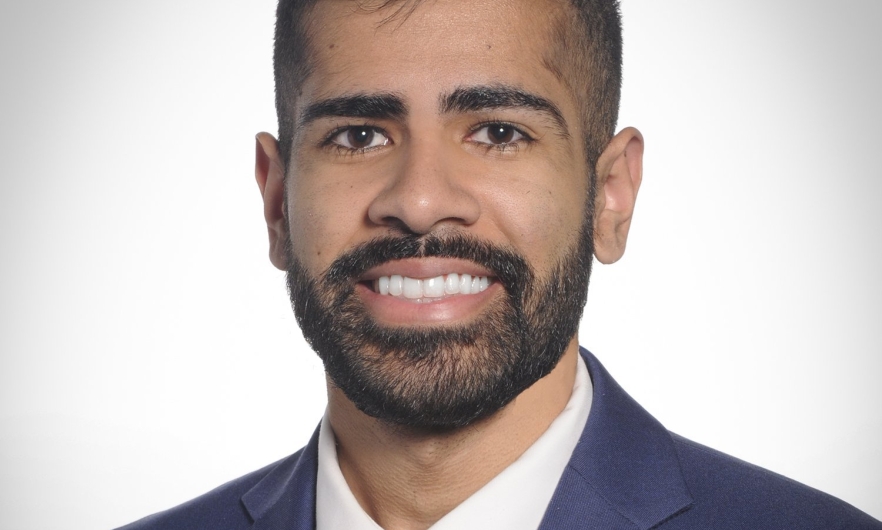Razeen Karim, Growing as a Health Equity Researcher

When Razeen Karim joined the Johns Hopkins Center for Health Equity (CHE) as a trainee, he knew he would gain valuable research skills, but he never anticipated the rich and varied opportunities that the program offers. By working closely with CHE faculty on two large research projects, Karim has been able to learn and grow as a health equity researcher.
Karim, an MD candidate at the Johns Hopkins School of Medicine (JHUSOM), received his undergraduate degree in neuroscience from the University of Michigan. Karim gained valuable experiences as an undergraduate, including managing and facilitating the growth of Adaptive Gymnastics, an organization that provided gymnastics classes for children with special needs, organizing basketball camps in his hometown of Greenville, Miss., and tutoring children in a township in South Africa. Since entering medical school, he has written grants for community-based organizations through Baltimore CONNECT, worked as a value-based care intern with Aledade, Inc., and completed Lean Six Sigma training at the Johns Hopkins Armstrong Institute for Patient Safety and Quality.
This diverse background made Karim an excellent candidate for the CHE Trainee Program, which provides opportunities to those seeking training in health equity research. For Karim, the CHE Trainee Program allowed him to develop as a health equity researcher under the leadership of some of the top researchers in the field, including Lisa Cooper, MD, MPH, Deidra Crews, MD, ScM, and Jill Marsteller, PhD.
"By working closely with health equity leaders…I gained valuable insight into the rigorous planning and infrastructure that is needed to implement and evaluate these interventions."
As a trainee at CHE, Karim is mentored directly by Drs. Crews and Marsteller and worked on two CHE studies: 5 Plus Nuts and Beans for Kidneys and the Reducing Inequities in Care of Hypertension: Lifestyle Improvement for Everyone (RICH LIFE) Project. Through his work on two separate projects, Karim has been able to experience several important aspects of health equity and community-based research, including organizing programs, developing materials for distribution, and conducting qualitative and quantitative research.
As part of the research team for 5 Plus Nuts and Beans for Kidneys, Karim gained practical experience as a project organizer by coordinating grocery deliveries for study participants. He also worked to develop dietary tip sheets for Baltimore community members participating in the study. For the RICH LIFE Project, he performed quantitative research on how the characteristics of healthcare practices influence patient engagement within a collaborative care intervention. He also performed qualitative analyses of interviews with healthcare executives to better define health system strategies for implementation and sustainability of a hypertension disparities intervention.
"I am grateful to have been given opportunities to develop a skillset in the quantitative and qualitative analysis of health disparities interventions."
- Razeen Karim
Karim’s experiences as a trainee have been invaluable and he is particularly thankful for the opportunity to work on major research projects alongside world-class health equity researchers at CHE. "I am grateful to have been given opportunities to develop a skillset in the quantitative and qualitative analysis of health disparities interventions,” Karim said. “By working closely with health equity leaders…I gained valuable insight into the rigorous planning and infrastructure that is needed to implement and evaluate these interventions."
He is excited to be a part of the CHE team and encourages anyone interested in gaining experience in health equity research to apply for the program.
The CHE Trainee Program, founded in 2010, “provides opportunities to those seeking training in health equity research at all levels of experience…through formal didactics, mentorship, and sponsorship.” To date, the program has trained over 500 “exceptional people to conduct research, deliver care to populations that experience health disparities, and advocate for health equity.”
If you are interested in applying to be a CHE Trainee, you can learn more on the Trainee Program page of the CHE website and complete the CHE Trainee Interest Survey to be considered for the program.
